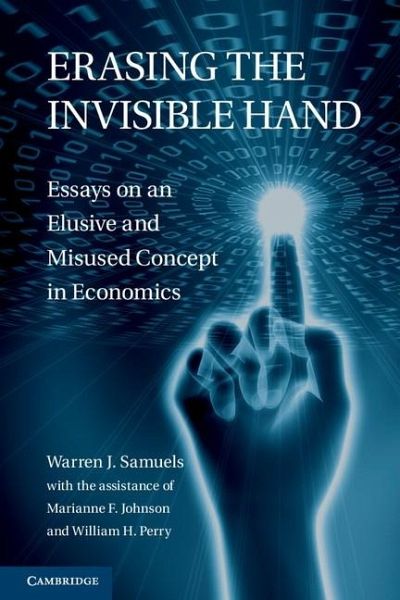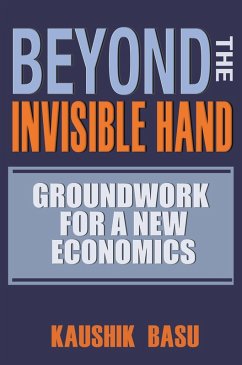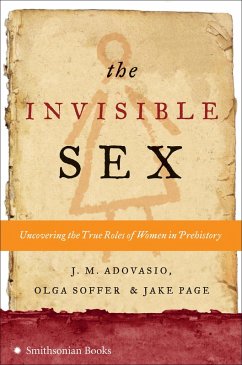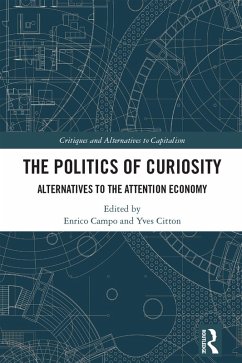
Erasing the Invisible Hand (eBook, ePUB)
Essays on an Elusive and Misused Concept in Economics
Versandkostenfrei!
Sofort per Download lieferbar
28,95 €
inkl. MwSt.
Weitere Ausgaben:

PAYBACK Punkte
14 °P sammeln!
This book examines the use, principally in economics, of the concept of the invisible hand, centering on Adam Smith. It interprets the concept as ideology, knowledge, and a linguistic phenomenon. It shows how the principal Chicago School interpretation misperceives and distorts what Smith believed on the economic role of government. The essays further show how Smith was silent as to his intended meaning, using the term to set minds at rest; how the claim that the invisible hand is the foundational concept of economics is repudiated by numerous leading economic theorists; that several dozen ide...
This book examines the use, principally in economics, of the concept of the invisible hand, centering on Adam Smith. It interprets the concept as ideology, knowledge, and a linguistic phenomenon. It shows how the principal Chicago School interpretation misperceives and distorts what Smith believed on the economic role of government. The essays further show how Smith was silent as to his intended meaning, using the term to set minds at rest; how the claim that the invisible hand is the foundational concept of economics is repudiated by numerous leading economic theorists; that several dozen identities given the invisible hand renders the term ambiguous and inconclusive; that no such thing as an invisible hand exists; and that calling something an invisible hand adds nothing to knowledge. Finally, the essays show that the leading doctrines purporting to claim an invisible hand for the case for capitalism cannot invoke the term but that other nonnormative invisible hand processes are still useful tools.
Dieser Download kann aus rechtlichen Gründen nur mit Rechnungsadresse in A, B, BG, CY, CZ, D, DK, EW, E, FIN, F, GR, HR, H, IRL, I, LT, L, LR, M, NL, PL, P, R, S, SLO, SK ausgeliefert werden.













